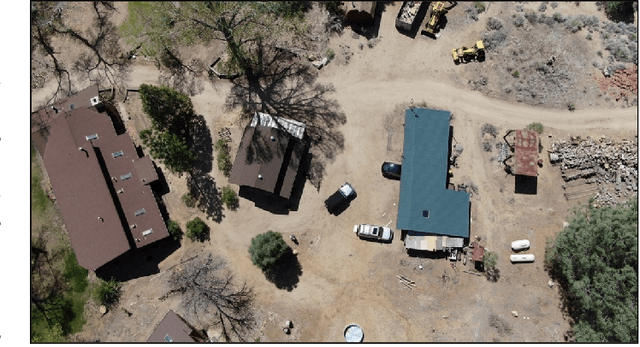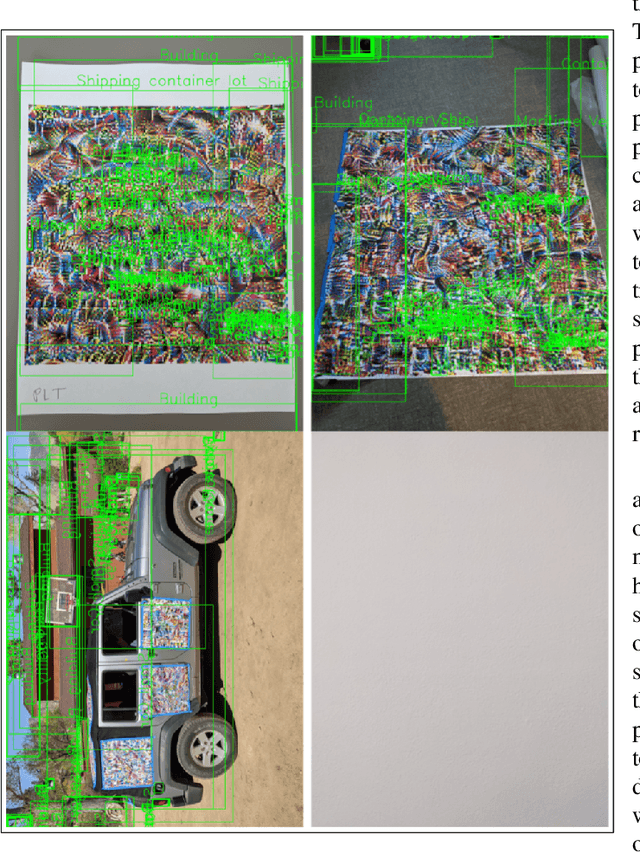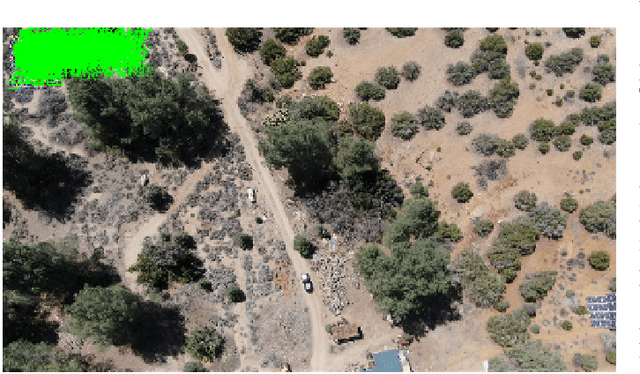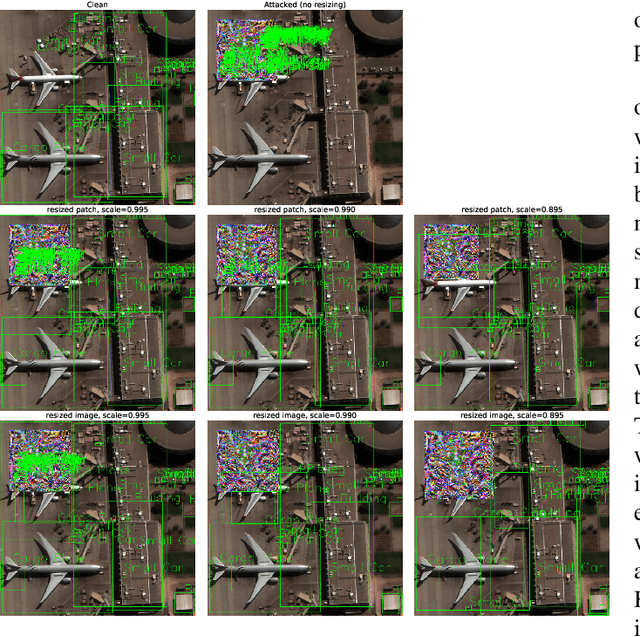Empirical Evaluation of Physical Adversarial Patch Attacks Against Overhead Object Detection Models
Paper and Code
Jun 25, 2022



Adversarial patches are images designed to fool otherwise well-performing neural network-based computer vision models. Although these attacks were initially conceived of and studied digitally, in that the raw pixel values of the image were perturbed, recent work has demonstrated that these attacks can successfully transfer to the physical world. This can be accomplished by printing out the patch and adding it into scenes of newly captured images or video footage. In this work we further test the efficacy of adversarial patch attacks in the physical world under more challenging conditions. We consider object detection models trained on overhead imagery acquired through aerial or satellite cameras, and we test physical adversarial patches inserted into scenes of a desert environment. Our main finding is that it is far more difficult to successfully implement the adversarial patch attacks under these conditions than in the previously considered conditions. This has important implications for AI safety as the real-world threat posed by adversarial examples may be overstated.
 Add to Chrome
Add to Chrome Add to Firefox
Add to Firefox Add to Edge
Add to Edge